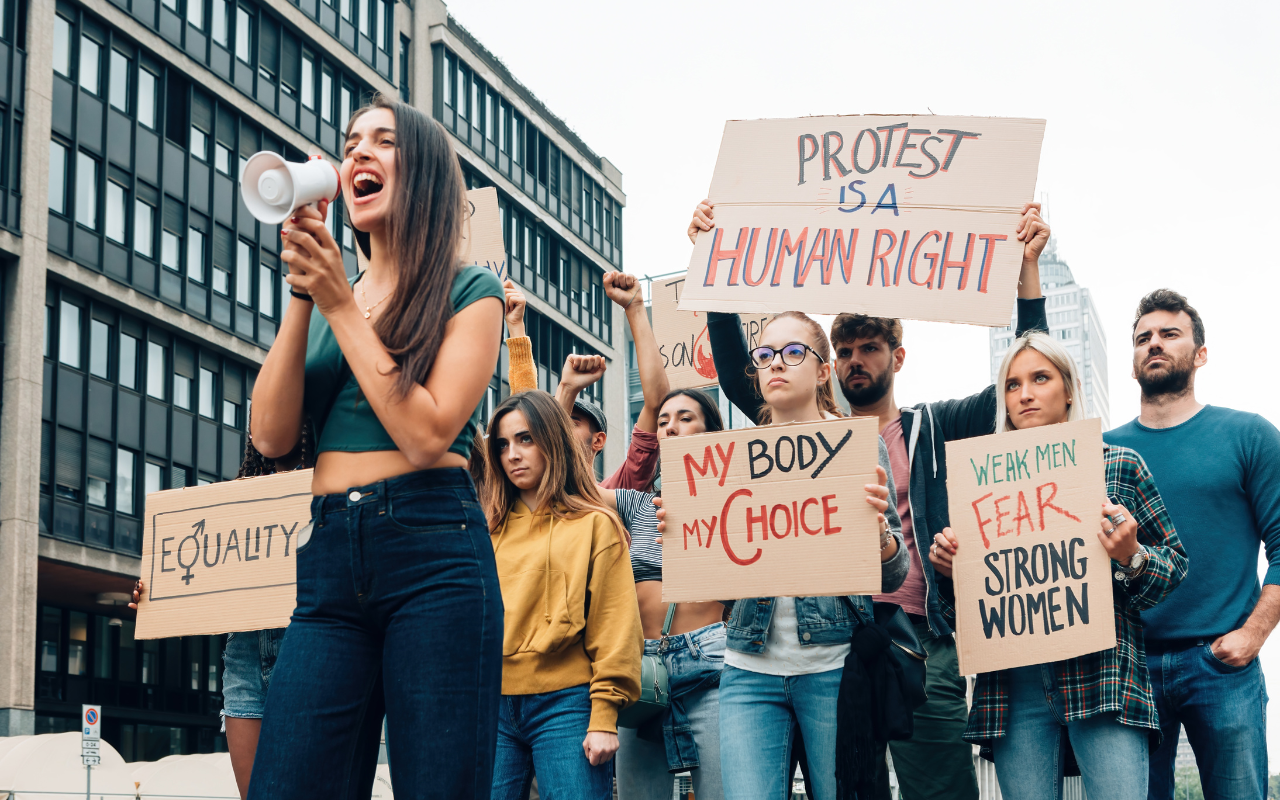
For nearly five decades, Roe v. Wade provided legal protection for abortion across the U.S., sparking intense opposition from many religious groups, most notably Catholic bishops and conservative evangelical Christians. To these groups, the Supreme Court’s decision to overturn Roe in 2022 marked a monumental victory—both political and spiritual. But this is only part of a much more complex story.
While some faith communities have long opposed abortion, others have supported reproductive rights, including abortion access, in ways that challenge the mainstream narrative of religion and reproductive health. From funding reproductive care to blessing abortion clinics, Christian leaders have played diverse and sometimes surprising roles in the abortion debate.
As we explore this history, it becomes clear that Christian attitudes on abortion are anything but one-sided.
A Historical Perspective on Christian Views of Reproductive Rights
The religious relationship with reproductive rights goes back centuries. For much of human history, faith communities played a central role in defining societal views on procreation. In ancient cultures, fertility rites were practiced publicly, tying human reproduction to spiritual well-being, such as bountiful harvests. However, as Christianity spread, attitudes shifted. Sex and reproduction were confined to the private domain, and control over family size became a deeply moral issue.
Surprisingly, before the late 19th century, abortion was not always viewed as the moral wrong it is often perceived as today. According to historian Leslie J. Reagan, many Christian traditions viewed “ensoulment”—the moment a fetus gains a soul—as tied to “quickening” or the moment a pregnant woman could feel fetal movement. Prior to this, ending a pregnancy was not considered morally wrong by many faiths, and neither religious doctrine nor law condemned abortion.
The 19th Century Shift: Medicine, Morality, and Abortion
By the late 1800s, things began to change. The American Medical Association (AMA) sought to assert its authority over reproductive health, sidelining midwives and traditional birthing practices. Some of the doctors involved in this movement were motivated by religious concerns about the morality of abortion. Yet, even then, much of the regulation focused on practitioners, not the women seeking abortions.
Interestingly, many early Christians opposed abortion not necessarily because of concern for unborn life, but because of its association with promiscuity. Others supported regulation for the sake of women’s safety and to combat medical fraud. Yet, by stigmatizing abortion, these regulations began the long process of defining reproductive care as morally contentious within Christian ethics.
Religious Support for Abortion: A Hidden Legacy
Despite the modern association of religion with anti-abortion sentiment, many Christian denominations have historically supported abortion access. The United Church of Christ, the American Baptist Convention, and the United Presbyterian Church all issued statements in favor of legal abortion in the 1960s.
In fact, as early as 1967, clergy from various denominations founded the Clergy Consultation Service (CCS) to help women safely access abortion care. This underground network counseled women, often assisting with travel to states where abortion was legal. Reverend Barbara Gerlach, a member of the CCS, recalls providing spiritual and emotional support to women seeking abortions, emphasizing that they often needed space to grieve and reflect on their decisions.
“I always felt like I was on holy ground,” Gerlach said, describing the reverent way in which women approached their choice.
A Shift in the Religious Right: Mobilization Against Abortion
By the 1970s, however, the religious landscape began to shift. With the rise of the Religious Right, abortion became a rallying point for conservative Christians, especially white evangelicals. This marked the beginning of a well-publicized campaign against abortion, fueled by groups like the Moral Majority and the National Right to Life Committee.
As historian Randall Balmer suggests, the Religious Right initially mobilized to defend racial segregation in schools. It wasn’t until later that abortion became a focal issue. By the 1980s, with Reagan in office, abortion had become a major political battleground for religious conservatives. As the Religious Right captured media attention, other religious perspectives on abortion faded from public view. This made it seem as if all Christians opposed reproductive rights, a perception that persists today.
Post-Roe: Faith-Based Reproductive Justice Today
With Roe v. Wade overturned, faith-based groups are once again stepping up to support reproductive rights. Organizations like the Religious Coalition for Reproductive Choice are working to ensure that people can still access safe abortions. In states where clinics are forced to close, faith leaders are helping women navigate complex legal and logistical challenges.
In Texas, where strict abortion bans have taken hold, religious leaders like Rev. Daniel Kanter are providing guidance to those seeking care in other states. Meanwhile, in Ohio, Faith Choice Ohio has launched the Jubilee Fund, the state’s first faith-based abortion fund, emphasizing the role of faith in advocating for reproductive justice.
As faith-based movements for reproductive rights gain visibility once more, many wonder whether an underground network like the CCS will reemerge. In a post-Roe world, religious voices on both sides of the issue will continue to shape the national conversation on abortion and reproductive justice.
Conclusion: A Nuanced Faith
The relationship between religion and abortion has always been nuanced. From the early days of the abortion debate to the post-Roe era, Christians have occupied both sides of the conversation. While some religious groups have fought for restrictions, others have worked tirelessly to ensure access to safe reproductive care. Understanding this complex history is crucial to navigating the moral and spiritual dimensions of abortion today.
Call to Action: Have you ever considered how your faith shapes your views on reproductive rights? Whether you stand for or against abortion, we must engage in meaningful, respectful dialogue that honors the diversity of Christian perspectives on this important issue.
